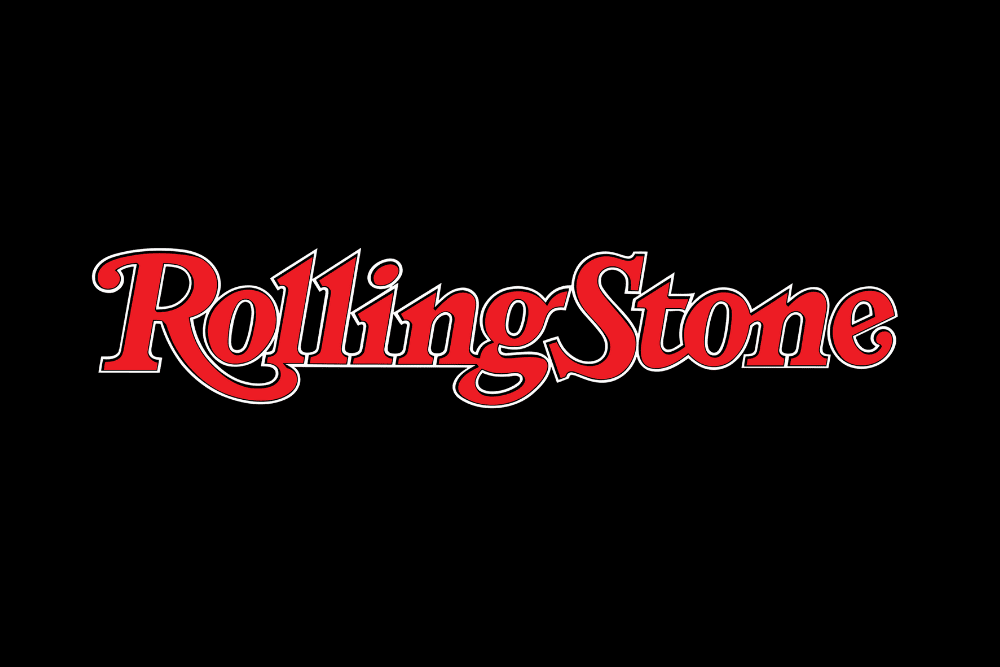When Outside Vendors Cross Professional Boundaries: Your Legal Rights
If you’re experiencing unwanted sexual advances from a vendor, delivery person, or contractor at your workplace, you’re not alone—and California law protects you. Sexual harassment doesn’t have to come from a coworker or supervisor to violate your rights. When third-party vendors create a hostile work environment through inappropriate comments, unwanted touching, or persistent sexual advances, you have powerful legal remedies available. The California Civil Rights Department (CRD) is the state agency charged with protecting Californians from unlawful discrimination in employment, including harassment from outside parties who interact with your workplace.
Many employees don’t realize that sexual harassment in the workplace violates both Title VII of the Civil Rights Act of 1964 and California’s Fair Employment and Housing Act, regardless of whether the harasser works directly for your company. Your employer has a legal duty under Title VII of the Civil Rights Act of 1964, codified at 42 U.S.C. § 2000e-2(a), to maintain a workplace free from harassment on the basis of protected characteristics (such as race, sex, religion, national origin, etc.). See the U.S. Equal Employment Opportunity Commission’s guidance on harassment. EEOC.gov/harassment
That duty extends not only to harassment by co-workers or supervisors, but also to harassment by third parties you may deal with in your job (such as vendors, customers, or independent contractors), if the employer knows or should know of the misconduct and fails to take prompt corrective action.
Knowing your rights and the remedies available can empower you to take action to stop the harassment and, where appropriate, seek compensation for the harm you’ve suffered.
💡 Pro Tip: Document every incident immediately after it happens, including the date, time, location, what was said or done, and any witnesses present. This contemporaneous record will be crucial evidence if you need to file a complaint or lawsuit.
Don’t let vendor harassment go unchecked; MSD Lawyers is here to help you regain control of your work environment. Navigate your legal options by reaching out to us at 213-401-0823 or contact us to explore your rights and remedies with a professional team by your side.

Understanding Your Rights When a Sexual Harassment Lawyer in Los Angeles Can Help
California law provides some of the strongest workplace protections in the nation, and these protections extend to situations involving vendor harassment. Under California’s Fair Employment and Housing Act (FEHA), the law applies broadly to public and private employers, labor organizations, employment agencies, apprenticeship programs, and licensing boards, establishing a comprehensive framework for protecting individuals from employment discrimination (Cal. Gov. Code §§ 12926(d), 12940, 12944) California Fair Employment and Housing Act (FEHA). Any employee, applicant, unpaid intern, volunteer, or contractor may file a complaint of harassment with the CRD, giving you multiple avenues for seeking justice when a sexual harassment lawyer in Los Angeles reviews your case.
Employers cannot evade responsibility by simply claiming the harasser isn’t on the payroll. Under Title VII of the Civil Rights Act of 1964, an employer may be liable for harassment by third parties (e.g. vendors, customers, contractors) if it “knows or should have known” of the misconduct and fails to take prompt corrective action.
In many states, including California, employers are required to notify new hires of their right to a harassment-free workplace and provide a complaint procedure addressing all forms of harassment (including harassment by nonemployees). Under California’s Fair Employment and Housing Act (FEHA), Gov. Code § 12940(j)–(k), employers must “take all reasonable steps necessary to prevent discrimination and harassment from occurring,” and must adopt a written complaint procedure and disseminate it to employees. Civil Rights Department
When a vendor or contractor sexually harasses an employee, once the employer knows or should have known of the harassment, the employer must act immediately and effectively. The corrective measures may include barring the vendor from the premises, assigning a different delivery person, or terminating the business relationship entirely.
The characteristics that employers, housing providers, businesses, state-funded programs, and others may not discriminate based on, including disability, gender, national origin, race, religion, sex, and sexual orientation, apply equally to vendor harassment situations. If you experience sexual harassment that rises to the level of violence or assault, you should immediately contact law enforcement in addition to pursuing civil remedies. Harassment is prohibited in all workplaces, regardless of size. While Title VII of the Civil Rights Act of 1964 protects employees of larger employers, states like California extend this protection to all workers. Under Cal. Gov. Code § 12940(j), even employers with one employee or an independent contractor must maintain a harassment-free workplace.
💡 Pro Tip: Report vendor harassment to your employer in writing as soon as possible. Email creates a timestamp and paper trail that proves you gave your employer the opportunity to address the situation before taking legal action.
Steps to Take After Vendor Harassment: Your Action Timeline
Taking swift action after experiencing vendor harassment can strengthen your case and help ensure you receive all available remedies. Put complaints in writing and keep records of each incident of harassment, noting the date and time and any people involved. This documentation becomes the foundation of any future legal action. Working with a sexual harassment lawyer in Los Angeles helps ensure you meet all critical deadlines and follow proper procedures for maximizing your recovery under California employment discrimination laws.
-
Report the harassment to your supervisor or HR department immediately, following your company’s complaint procedure if one exists
-
File a written complaint with your employer within days of the incident, keeping a copy for your records
-
Contact the CRD at 800-884-1684 to discuss filing a formal complaint if your employer doesn’t take appropriate action
-
Gather evidence including emails, text messages, security footage requests, and witness statements while memories remain fresh
-
Consider filing a police report if the harassment involved assault, battery, or credible threats of violence
-
Consult with an attorney who handles vendor harassment cases to understand your full range of legal options and potential compensation
In some cases, failure to report the conduct in any way may impact your ability to further pursue remedies against your employer, though supervisors and coworkers remain personally liable for their own acts of harassment. California’s Fair Employment and Housing Act (FEHA) states that individuals generally have three years from the date of the last incident of harassment, discrimination, or retaliation to file a complaint with the California Civil Rights Department (CRD), as provided in California Government Code § 12960(e). (California Civil Rights Department – Complaint Process) Taking action as soon as possible, however, often leads to better outcomes and can help prevent the unlawful conduct from continuing.
💡 Pro Tip: If you have a disability that prevents you from submitting a written pre-complaint form online, by mail, or email, the CRD can assist you by scribing your pre-complaint by phone or through the American Sign Language relay system.
Legal Remedies and How MSD Lawyers Protect Your Rights
Victims of vendor sexual harassment have multiple legal remedies available, from administrative complaints to civil lawsuits seeking substantial damages. You don’t need a lawyer to file a complaint with the appropriate state or federal agency, but having experienced legal representation often leads to better outcomes. A sexual harassment lawyer in Los Angeles can help you navigate the complex intersection of employment law, civil rights protections, and vendor liability issues while building the strongest possible case for compensation.
Available remedies for vendor harassment may include back pay if you lost work due to the hostile environment, front pay for future lost earnings, compensatory damages for emotional distress, punitive damages to punish egregious conduct, and attorneys’ fees. MSD Lawyers has extensive experience handling third-party harassment cases and understands how to hold both vendors and employers accountable when they fail to maintain a harassment-free workplace. Our firm’s proven track record in sexual harassment cases means we know how to document vendor misconduct, demonstrate employer negligence, and maximize recovery for our clients throughout the Los Angeles area.
The resolution process typically begins with filing an administrative complaint, though in severe cases involving assault or ongoing harassment, immediate legal action may be necessary. Once a complaint is filed, the California Civil Rights Department (CRD) is authorized to investigate the allegations, seek resolution through mediation, or bring a civil action in court if violations are found, as outlined in California Government Code § 12965(a). (California Legislative Information – Gov. Code § 12965). MSD Lawyers can guide you through each step, from initial documentation through settlement negotiations or trial. We understand that vendor harassment can be particularly frustrating because the harasser may continue visiting your workplace, creating ongoing stress and fear. That’s why we work quickly to secure protective measures while pursuing your case.
💡 Pro Tip: Keep a detailed journal of how the harassment affects your work performance, health, and personal life. This evidence of damages can significantly increase your potential compensation in a sexual harassment lawsuit.
Employer Liability: When Companies Must Pay for Vendor Misconduct
Understanding when employers become liable for vendor harassment helps victims recognize the full scope of their legal options. California law places liability on employers when they knew — or should have known — of harassment and failed to take immediate and appropriate corrective action, under Cal. Gov’t Code § 12940(j)(1) & (k) https://ca.elaws.us.This standard means an employer cannot escape responsibility by claiming ignorance if the harassment was obvious or would have been uncovered through reasonable supervision. Consulting with a sexual harassment attorney in Los Angeles can help determine whether your employer met these duties
Effective September 2022, the California Civil Rights Department has updated its Sexual Harassment Fact Sheet that must be distributed to all new hires and is recommended for all employees annually and independent contractors. This requirement ensures all workers understand their rights regarding vendor harassment. Failure to provide mandated sexual harassment information to employees can result in costly fines and lawsuits, creating additional liability for employers who don’t take prevention seriously.
Red Flags That Increase Employer Liability
Several factors can dramatically increase an employer’s liability in vendor harassment cases. Employers of 5 or more employees are required to provide sexual harassment prevention training to all supervisory and nonsupervisory employees, and this training must specifically address third-party harassment scenarios. When employers skip this training or provide inadequate instruction, they become more vulnerable to liability. Additionally, if your employer has received previous complaints about the same vendor or has a pattern of ignoring harassment reports, these facts can support claims for punitive damages that significantly increase your potential recovery.
💡 Pro Tip: Request a copy of your employer’s sexual harassment prevention training materials and complaint procedures. If they can’t provide them or they don’t address vendor harassment, this gap in compliance strengthens your case.
Building Your Strongest Case Against Vendor Harassment
Creating a compelling legal case for vendor harassment requires strategic evidence gathering and understanding how California courts evaluate these claims. Sexual harassment lawsuit compensation depends heavily on the quality of documentation and the severity of the conduct. Successful cases typically combine multiple forms of evidence including written complaints, witness testimony, and proof of damages. The key is showing a pattern of unwelcome sexual conduct that created a hostile work environment and that your employer failed to adequately respond.
The CRD retains records for three years after a case is closed, and once closed, parties may request copies of the file governed by the Public Records Act and relevant privileges. However, CRD does not share investigative records of open case files, maintaining confidentiality during active investigations. This means building your own comprehensive record from the start is essential. Photos of inappropriate messages, recordings where legally permitted, and contemporaneous notes all strengthen your position.
Calculating Damages in Vendor Harassment Cases
Third-party harassment cases often involve unique damage calculations because the ongoing nature of vendor relationships can create continuing harm. Beyond lost wages and emotional distress, victims may experience career setbacks from avoiding work areas where vendors appear or missing advancement opportunities due to harassment-related performance issues. Courts in the Greater Los Angeles area have recognized that vendor harassment can be particularly damaging because victims feel trapped between needing their job and facing repeated unwanted contact. Document any medical treatment, therapy, or medication needed due to harassment-related stress, as these costs form part of your economic damages.
💡 Pro Tip: Save all receipts for harassment-related expenses, including therapy co-pays, medications, and even gas for extra trips home during lunch to avoid the harassing vendor. These seemingly small costs add up and demonstrate the real-world impact of the harassment.
Frequently Asked Questions
Common Legal Concerns About Vendor Harassment
Many employees hesitate to report vendor harassment because they’re unsure about their rights or fear their employer won’t support them. Understanding the legal framework helps you make informed decisions about protecting yourself.
💡 Pro Tip: You can contact the CRD at 800-700-2320 (TTY) or through California’s Relay Service at 711 for confidential guidance before deciding whether to file a formal complaint.
Next Steps in Your Vendor Harassment Case
Taking action against vendor harassment requires careful planning and understanding of the legal process. The path forward depends on your specific situation, the severity of harassment, and your employer’s response.
💡 Pro Tip: Email yourself copies of all harassment documentation and evidence from your work computer to preserve it in case your employment situation changes suddenly.
1. Can I sue a vendor directly for sexual harassment, or must I go through my employer?
You have multiple legal options when facing vendor harassment. While your employer bears primary responsibility for maintaining a harassment-free workplace, you may also have direct claims against the vendor or their employer. A workplace harassment legal help Los Angeles attorney can evaluate whether to pursue claims against both parties to maximize your recovery and ensure the harassment stops.
2. What if my employer says they can’t control what outside vendors do?
This common employer excuse doesn’t hold up under California law. Employers must take all reasonable steps to prevent and address harassment, including terminating vendor relationships if necessary. They can require vendors to send different representatives, implement strict conduct policies, or supervise vendor interactions. A vendor harassment attorney Los Angeles can help prove your employer had numerous options to protect you. California’s Fair Employment and Housing Act (FEHA) — specifically California Government Code § 12940(j) and § 12940(k) — and enforced by the California Civil Rights Department (CRD).
3. How much compensation can I receive for vendor sexual harassment?
Sexual harassment compensation Los Angeles varies based on factors including the severity of harassment, duration, impact on your career, and emotional distress suffered. Settlements and verdicts can range from thousands to hundreds of thousands of dollars. Economic damages cover lost wages and medical expenses, while non-economic damages compensate for pain, suffering, and emotional distress.
4. What if I’m afraid the vendor will retaliate if I report them?
California law strongly prohibits retaliation for reporting harassment. Cal. Gov’t Code § 12940(h) Your employer must protect you from any vendor retaliation, including banning the vendor if they threaten or intimidate you. Document any retaliation immediately Cal. Gov’t Code § 12940(j)(1), as it creates additional legal claims and often increases damage awards. A third party harassment lawyer California can seek immediate court protection if needed.
5. How long do I have to file a vendor harassment claim?
You typically have three years to file with the CRD, but acting quickly is crucial. Evidence disappears, witnesses forget details, and continued harassment causes mounting damages . Contact a Los Angeles employment law firm promptly to preserve your rights and explore all available remedies under Los Angeles/CA Sexual Harassment laws.
Work with a Trusted Sexual Harassment Lawyer
Vendor harassment cases require attorneys who understand both employment law and the unique dynamics of third-party workplace relationships. The CRD headquarters is located at 651 Bannon Street, Suite 200, Sacramento, CA 95811, with regional offices available, but having local legal representation ensures someone who knows Los Angeles courts and employment practices advocates for your rights. Neither CRD nor any other state agency issues licenses or certificates validating a person’s qualifications to teach sexual harassment prevention training classes, but experienced attorneys demonstrate their capability through successful case results and client testimonials.
When selecting legal representation for your vendor harassment case, look for firms with proven track records in employment law and specific experience handling third-party harassment claims. California employers are required to distribute an information sheet regarding sexual harassment to all employees, and knowledgeable attorneys will verify whether your employer complied with all prevention requirements. Contact the California Civil Rights Department at [email protected] or speak with qualified legal counsel to understand your options and protect your right to work in an environment free from vendor harassment.
If you’re facing vendor harassment, don’t let it slide—take action now with MSD Lawyers. Reach out to us at 213-401-0823 or contact us to explore your legal avenues and bring peace back to your workspace.












